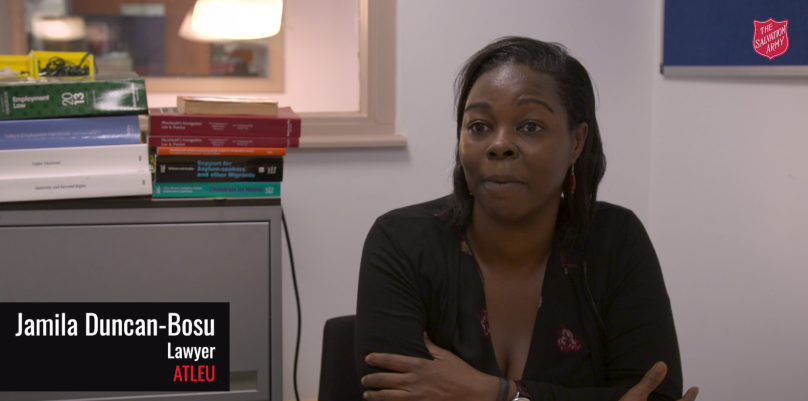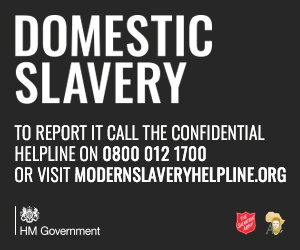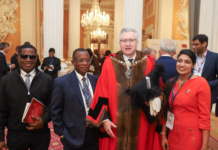Jamila Duncan-Bosu is a lawyer for the Anti Trafficking and Labour Exploitation Unit (ATLEU), one of the legal firms The Salvation Army works with to support victims of domestic slavery. She is one of many lawyers providing victims with legal advice. This could be to help get them compensation or other legal issues. She tells us her views on the role, and helping domestic slavery victims.

Domestic slavery is a crime which may very well be happening right under your nose in the UK. With this type of exploitation, victims are often tricked in to coming to the country with the incentive of education, a salary to send back home to family members and a brighter future than they would have back home.
Sadly, the reality is often very different. After being lured to the UK under false promises, victims are often made to work from dawn till dusk, or woken up in the middle of the night for more chores. They can be deprived of food, water, sleep and even medical care. On top of this abuse, they are living in an unfamiliar country and unlikely to be allowed to contact friends or family back home.
An anonymous call to The Salvation Army can be the first step to helping someone out of this kind of situation and to getting them the help they deserve. The charity [Salvation Army] works with many organisations who guide victims on their journey to independence. This begins with an interview to confirm they are a victim of domestic slavery, and then involves transport to a safe house far away. This is followed by support – emotional, psychological, medical, legal – whatever it is that the individual needs.
I get involved after victims have been rescued and are in a place of safety. I can help a victim of domestic slavery obtain compensation for the way in which they were treated. That could mean obtaining wages that they have been denied, or compensation for being verbally and physically abused, having their passport taken from them and being locked up against their will. Gaining that money can be life changing for a victim of domestic slavery. Can you imagine receiving your salary for six years in one go? It can be the thing that helps break the cycle of exploitation for a victim who feels they have nothing.
I think it’s incredibly important that victims of domestic slavery obtain justice for the way in which they are treated. Helping someone to obtain compensation is one way of getting justice and I find that immensely satisfying.
A particular client and survivor of domestic slavery which has stuck in my mind told me: “I did not believe that the law could help me. I thought I was a poor person, I thought I was nobody. To hear them say that actually I was as important as anybody else and to have a fair hearing was a very special moment. The judge listened to my story, the judge believed me and the judge awarded my compensation.”
You could open the door for victims of domestic slavery to get the type of legal support Jamila provides.
If you think someone might be a victim of domestic slavery, considering the following questions can help you more confidently ‘spot the signs’:
- What conditions are they living in?
- Does the person ever leave the house on their own?
- Do they seem afraid or anxious around others?
- Do they seem to be treated differently to other members of the family?
- Do they seem as though they can freely contact their friends or family?
- Do they appear to work excess hours?
- Do you know if their passport or any official documents have been taken away?
 Domestic slavery is often closer than you think. If you find the above questions raising concern about someone you suspect might be a victim and in need of assistance, do the right thing and call The Salvation Army’s referral helpline 0300 3038151. It is available 24/7, is confidential, and anonymous. The only person who will know someone made a call will be the victim. More information can be found on the Salvation Army website https://www.salvationarmy.org.uk/modern-slavery.
Domestic slavery is often closer than you think. If you find the above questions raising concern about someone you suspect might be a victim and in need of assistance, do the right thing and call The Salvation Army’s referral helpline 0300 3038151. It is available 24/7, is confidential, and anonymous. The only person who will know someone made a call will be the victim. More information can be found on the Salvation Army website https://www.salvationarmy.org.uk/modern-slavery.
Kindly follow us on twitter:@AfricanVoice2








